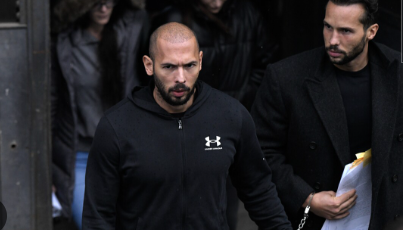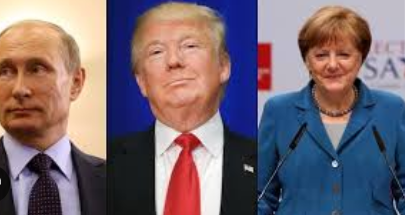Emory Andrew Tate III, commonly known as Andrew Tate, is a name that has sparked global attention, admiration, and controversy in equal measure. A former kickboxing world champion turned entrepreneur and internet personality, Tate has carved out a polarizing reputation across various social media platforms. For some, he is a symbol of male empowerment and financial freedom; for others, he is the embodiment of toxic
Masculinity and internet sensationalism.
who is Andrew Tate?
Washington, D.C. Born in December 1, 1986.Washington, D.C., and raised in Luton, England, Tate has become one of the most discussed online figures in recent years. From his early kickboxing days to his explosive social media presence and subsequent legal battles, his journey reflects the complexities of fame in the digital age. This article delves into Andrew
Andrew Tate biography
| Category | Details |
|---|---|
| Full Name | Emory Andrew Tate III |
| Known As | Andrew Tate |
| Date of Birth | December 1, 1986 |
| Place of Birth | Washington, D.C., USA |
| Nationality | British-American |
| Raised In | Luton, England |
| Father | Emory Tate (International Chess Master) |
| Occupation | Former Kickboxing Champion, Entrepreneur, Internet Personality |
| Famous For | Controversial online persona, Hustler’s University, motivational and polarizing content |
| Kickboxing Titles | 4× World Champion (ISKA and others) |
| Businesses | Hustler’s University, The War Room, various online ventures |
| Social Media Presence | Active on X (Twitter), Rumble, and Telegram (banned from major platforms like YouTube, Instagram, TikTok) |
| Controversies | Accusations of misogyny, hate speech, and toxic masculinity |
| Legal Issues | Arrested in Romania (2022) for alleged human trafficking and rape — ongoing case as of 2025 |
| Philosophy | Promotes masculinity, self-reliance, financial freedom, and anti-establishment views |
| Public Perception | Divisive — seen as empowering by supporters, harmful by critics |
| Current Status (2025) | Under legal scrutiny, continues online influence via alternative platforms |
Tate’s life.
Business ventures, public image, controversies, and what makes him such a divisive
figure in modern culture.
Early Life and Background
Andrew Tate
Andrew Tate was born on December 1, 1986, to Emory Tate, a renowned chess International Master, and a British mother. Growing up in Luton, he developed a competitive spirit early on. Influenced by his father’s strategic thinking and assertive personality, Tate found a passion for combat sports. Despite financial hardships during his childhood, Tate was ambitious. He trained in kickboxing, a discipline that would later serve as his entry point into fame. Tate’s early life is characterized by a relentless drive to succeed, even when the odds were stacked against him.
Kickboxing
Andrew Tate rose to prominence in the world of kickboxing. He became a four-time world kickboxing champion, competing in various international tournaments. His aggressive fighting style and larger-than-life personality helped him gain notoriety, not just as a skilled fighter but also as a showman.
His achievements include:
Winning the ISKA Full Contact Cruiserweight Championship. Competing under organizations like Fusion and ISKA. He earned global respect for his performance and work ethic. Despite his success, Tate eventually retired from professional kickboxing to focus on business and personal branding.
Business Ventures
Tate claims to be a self-made millionaire, attributing his wealth to a variety of online and
offline ventures. Some of his well-known business activities include:
1. Hustler’s University
online course platform where Tate and other instructors offer classes on topics like cryptocurrency, freelancing, e-commerce, and copywriting. It gained rapid popularity, especially among young men aspiring to earn money online. Critics, however, have labeled it as a “pyramid scheme” due to its referral-based growth
system.
2. The War Room
exclusive men’s network that offers mentorship, self-improvement tools, and elite gatherings around the world. Tate markets it as a brotherhood for high-value men, though detractors argue it promotes misogynistic ideals.
3. Online Presence and Brand Building
brand thrives on virality. He uses platforms like X (formerly Twitter), YouTube, and Instagram to share his philosophies on masculinity, wealth, and power. His content ranges from motivational advice to highly provocative statements that challenge modern
Societal norms.
Rise to Internet Fame Andrew Tate’s fame skyrocketed due to his short-form videos on TikTok, Instagram,
and YouTube. Despite being banned from several platforms, clips of his interviews and
Monologues continue to be widely shared by fans and critics alike.
Key reasons for his viral success include:
Controversial takes on gender roles, mental health, and modern relationships. Alpha male branding that appeals to disenfranchised young men. Bold lifestyle featuring luxury cars, private jets, and exotic locations.
While some see Tate as a beacon of unapologetic truth, others argue that his influence is dangerous and regressive.
Controversies and Bans
Andrew Tate’s rapid online rise did not come without backlash. In 2022, he was banned from major platforms like Instagram, Facebook, TikTok, and YouTube for violating hate speech and misinformation policies. His views on women, feminism, and relationships were deemed harmful by various advocacy groups.
Some of the main criticisms include allegations of misogyny and promoting violence. Downplaying mental health issues like depression. Encouraging hypermasculine behavior to a toxic extent. Despite these bans, Tate’s content is still widely circulated by fan accounts and on platforms with more lenient moderation policies.
Legal Issues
In late 2022, Andrew Tate and his brother, Tristan Tate, were arrested in Romania on charges of human trafficking, rape, and forming an organized crime group. Romanian authorities accused the Tate brothers of luring women under false pretenses and exploiting them in adult content businesses. As of mid-2025, legal proceedings are still ongoing. Both brothers have denied the allegations, claiming they are victims of a politically motivated witch hunt aimed at silencing influential voices who challenge the mainstream narrative.
The legal battle has only intensified public interest in the Tate brand. Supporters see it as proof that the system targets those who speak uncomfortable truths, while critics believe it’s a long-overdue reckoning.
Philosophy and Beliefs
Andrew Tate promotes a blend of stoicism, capitalism, and masculinity. His teachings center on self-discipline, financial independence, and personal power. He often criticizes modern Western society for promoting weakness and dependence, particularly among men. Key themes in his ideology include Self-reliance: emphasis on creating wealth through entrepreneurship.
Masculinity
Advocates traditional gender roles and male dominance. Anti-establishment: Mistrust of governments, media, and modern institutions. Freedom: Tate champions financial and social autonomy above all else.
While many fans appreciate his unapologetic realism, others believe his worldview is simplistic and harmful.
Public Image
Andrew Tate remains one of the most divisive figures on the internet. His supporters view him as a modern-day rebel who challenges societal decay, empowers young men, and lives life on his own terms. They argue that he speaks uncomfortable truths in a world obsessed with political correctness. Critics, however, believe Tate is a dangerous influence who exploits vulnerable audiences for profit.
Final thoughts
They point to his rhetoric as promoting misogyny, elitism, and radical ideologies masked as “self-help.” Mainstream media, feminist groups, and mental health experts have all expressed concern about the impact of Tate’s content, especially on impressionable teens and young adults.
As of mid-2025, legal proceedings are still ongoing. Both brothers have denied the allegations, claiming they are victims of a politically motivated witch hunt aimed at silencing influential voices who challenge the mainstream narrative.
The legal battle has only intensified public interest in the Tate brand. Supporters see it as proof that the system targets those who speak uncomfortable truths, while critics believe it’s a long-overdue reckoning.
Conclusion
Andrew Tate is more than just a former kickboxer or internet personality—he’s a phenomenon that reflects deep societal divides. Whether you see him as a charismatic leader or a harmful provocateur, there’s no denying his impact on digital culture, gender discourse, and modern masculinity. In a world where influencers often chase virality at the cost of authenticity, Tate’s raw and confrontational approach has earned him a loyal following—and powerful enemies. His legacy, still unfolding, may be remembered as either the voice of a new wave of masculine empowerment or a cautionary tale of internet extremism. Time will reveal whether Andrew Tate is a visionary or a villain—or perhaps, a little bit of both.
FAQs
Q1: Who is Andrew Tate?
A: Andrew Tate is a former world champion kickboxer, entrepreneur, and social media
personality known for his controversial views on masculinity, society, and success.
Q2: What is Hustler’s University?
A: Hustler’s University is an online course platform created by Andrew Tate, offering
lessons on making money online through various skills like crypto trading, e-commerce,
and freelancing.
Q3: Why was Andrew Tate banned from social media?
A: He was banned from platforms like YouTube, Instagram, and TikTok due to violating
policies related to hate speech, misinformation, and promoting harmful ideologies.
Q4: What are the allegations against Andrew Tate?
A: As of 2025, Andrew and his brother are facing charges in Romania related to human
trafficking and rape. They deny all accusations and claim political persecution.
Q5: What does Andrew Tate believe in?
A: Tate promotes self-reliance, traditional masculinity, financial independence, and
skepticism towards mainstream narratives and institutions.
Q6: Is Andrew Tate a positive role model?
A: Opinions are divided. Supporters praise him for motivating young men and
promoting strength, while critics warn against his toxic views on women and mental
health.







Leave a Reply